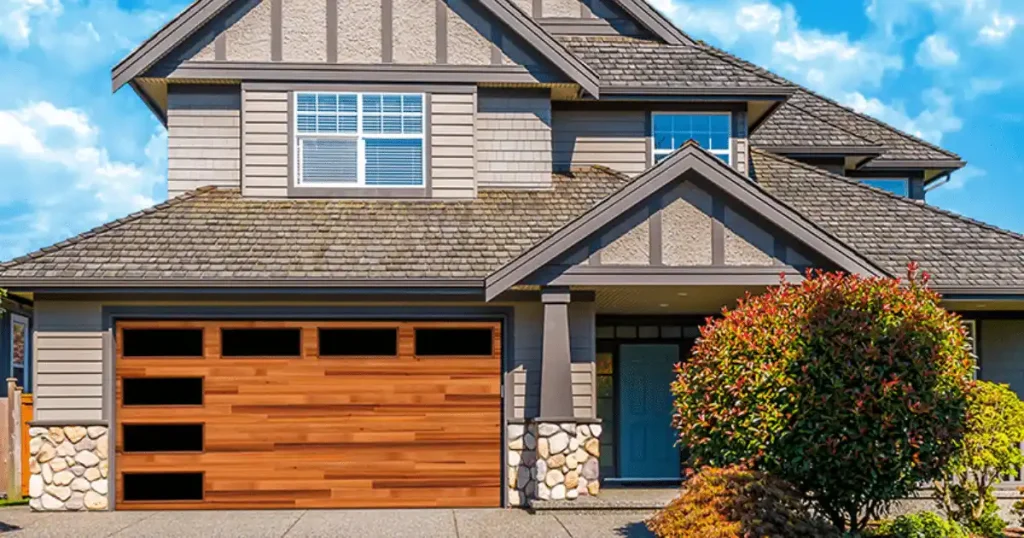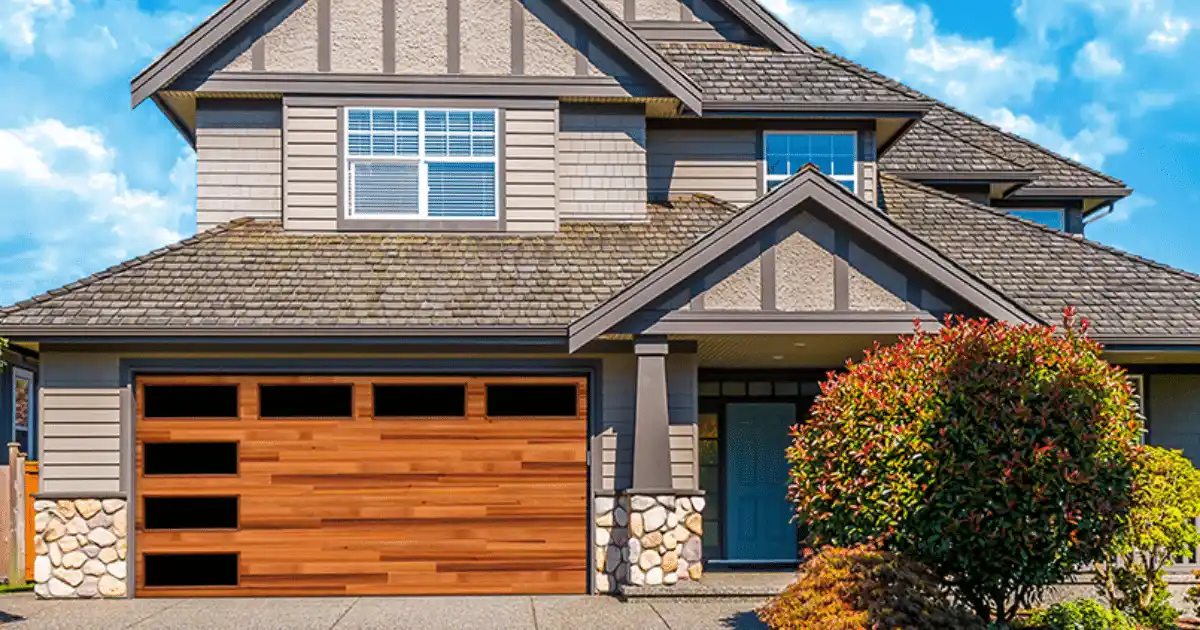When your garage door starts acting up, it’s easy to ignore the issue and hope it resolves on its own. But minor problems often turn into bigger ones, and before long, you may be dealing with a door that won’t open, close, or keep your home safe. Knowing the signs that you need a new garage door in Chicago can save you time, money, and frustration.
From unusual noises and slow movement to visible damage or rising energy bills, your garage door gives clear warnings when it’s reaching the end of its lifespan. By paying attention to these clues, you can avoid sudden breakdowns and the stress of emergency repairs. For homeowners in Chicago, IL, who want peace of mind and security, identifying these early signs is the first step toward selecting a reliable and long-lasting replacement.
Strange Noises That Don’t Go Away
A healthy garage door should glide smoothly, making only a low humming or rolling sound. But when you start to notice grinding, clunking, squealing, or banging, it’s your door telling you that something is wrong. In Chicago, where freezing winters cause metal parts to contract and humid summers cause them to expand, wear and tear often shows up as persistent noises.
Common sounds to pay attention to:
- Grinding or scraping – usually caused by worn-out rollers or tracks out of alignment
- Banging or clunking – often linked to broken or weak springs
- High-pitched squeaks – typically from poor lubrication or worn bearings
These noises aren’t just annoying — they’re early warnings. If ignored, they can quickly turn into major repairs, such as broken springs, bent tracks, or a stuck garage door that refuses to open when you need it most. For homeowners relying on their garage daily, that’s more than an inconvenience; it’s a safety and security issue.
Damage You Can See and Feel
Not all problems hide inside the mechanics. Sometimes, the evidence is right in front of you. Visible damage on your garage door can signal structural weakness and reduce the overall safety of your home. Living in Chicago means your garage faces dents from snow shovels, corrosion from road salt, and swelling from rain or humidity.
Types of damage to look for:
- Sagging panels that won’t close evenly
- Rust or corrosion spreading across metal doors
- Cracks or peeling paint exposing wood to moisture
- Broken windows that let in drafts and compromise security
Even if the door still opens and closes, visible wear can lower your home’s value and compromise its curb appeal. Imagine putting your house on the market with a warped, cracked garage door — buyers immediately see it as an expensive problem to fix. If you want to explore design upgrades while improving function, read our article on “How to Choose the Right Garage Door Style for Your Chicago Home.”
Too Many Repairs, Too Often
Needing a repair once every couple of years is normal. But if you’re calling a technician every few months, your garage door is costing you more than it’s worth. In fact, frequent repairs are one of the most evident signs you need a new garage door. Chicago homeowners should pay attention to this.
When repairs no longer make sense
- You’ve replaced springs or cables more than once in recent years
- The opener system keeps failing, even after service
- Parts for your older model are more challenging to find
- Multiple service calls within a year
At this point, a new garage door is often more affordable in the long run. Instead of pouring money into a failing system, replacement gives you reliability and peace of mind. If you’re weighing your options, The Lifespan of Garage Doors: When to Repair vs. Replace breaks down how to know when repair is no longer enough.
Why Garage Door Maintenance and Safety Matter in Chicago
Regular maintenance helps garage doors last longer, but no system lasts forever. Even with consistent care, age and wear eventually compromise safety. In a city like Chicago, where temperatures fluctuate between freezing winters and humid summers, safety checks are essential.
Safety risks to watch for
Garage doors are heavy, and when parts fail, they can cause serious injuries. One of the most overlooked but essential features is the auto-reverse function. If the sensors fail to detect objects and the door is not reversed correctly, it’s a clear danger sign.
Other red flags:
- Broken safety cables on extension spring systems
- Frayed lifting cables that could snap anytime
- Opener systems without modern safety sensors
When a door becomes unsafe despite regular maintenance, replacing it protects your family and makes your garage reliable again.
Energy Loss and Higher Utility Bills
Did you know your garage door can affect your home’s energy bills? Many older doors in Chicago lack insulation, allowing outside air to seep in. This not only makes your garage uncomfortable but also forces your heating and cooling system to work harder.
Signs your door is affecting energy efficiency:
- Feeling cold drafts near the door in winter
- A garage that’s unbearably hot in summer
- Rising energy bills with no other explanation
- Gaps along the sides or bottom of the door
Modern garage doors are built with insulation designed to handle Chicago’s temperature swings. They keep your garage more comfortable and help lower monthly energy costs. To learn how professional installation makes a difference, check out Garage Door Installation in Chicago, IL: Why Trusting Professionals Saves Time & Stress.
Outdated Technology That Doesn’t Meet Today’s Standards
Another reason many homeowners replace their garage doors is the advancement of technology. Older systems lack the safety, security, and convenience features that modern garage doors provide.
Features to expect in newer doors
- Smartphone access to open and close your door from anywhere
- Rolling code technology that prevents hackers from copying your opener signal
- Battery backup systems that work during power outages
- Quieter openers that won’t disturb your household
Research on modern openers shows how advanced they’ve become. An IoT-based case study on ResearchGate explains how innovative garage door systems improve both safety and convenience. Staying updated ensures your home is not only safer but also more functional.
If you’re still unsure about when to replace your garage door, Vocal Media offers additional guidance to help you determine the right time for an upgrade.
Don’t Ignore the Warning Signs
Noticing the early signs that you need a new garage door in Chicago can save you from unexpected breakdowns, costly repairs, and safety risks. From strange noises to visible damage, rising energy bills, and outdated technology, each warning signal highlights the importance of acting sooner rather than later.
A new garage door not only enhances security and efficiency but also increases your home’s value. For trusted guidance and expert installation, reach out to Premium Garage Door Repair today — call us for more information and let our team help you find the best solution for your home.
Frequently Asked Questions
What are the most common signs that I need a new garage door in Chicago?
Some of the most significant signs include loud grinding or banging noises, cracked or sagging panels, frequent repairs, malfunctioning safety features, and higher energy bills due to poor insulation.
Why is my garage door making so much noise lately?
Noises usually mean parts are wearing out. Bad rollers can cause grinding, banging may indicate a broken spring, and squeaking often results from a lack of lubrication. If the noises don’t go away with maintenance, replacement may be needed.
Can visible dents or cracks really affect how my garage door works?
Yes, they can. Dents and cracks weaken the structure, cause uneven movement, and even make the door unsafe. Over time, damage can spread and become more expensive to repair than to replace.
How do Chicago winters affect garage doors?
Cold temperatures cause metal to contract and springs to become brittle, while snow and salt can cause rust. Humid summers then expand materials, exacerbating wear and tear. This cycle shortens a door’s lifespan.
Is it better to keep repairing my old garage door or replace it?
If repairs are happening often or costing more than half the price of a new door, replacement is usually the more brilliant move. A new door also adds safety features and better insulation.
How can a failing garage door be a safety hazard?
A broken spring or cable can suddenly snap, causing a heavy door to drop without warning. Faulty sensors or openers also increase the risk of accidents with kids, pets, or vehicles.
What role does insulation play in garage doors?
Insulated doors help regulate the temperature in your garage, reduce drafts, and lower energy bills. In Chicago’s climate, insulation makes a big difference in comfort and savings.
Why are my energy bills increasing if my garage door appears to be in good condition?
Even if it looks okay, worn seals or poor insulation can allow air to leak in and out. That forces your heating and cooling system to work harder, raising energy costs.
How long should a garage door usually last?
Most garage doors last about 15 to 20 years with regular maintenance. If your door is older than that, replacement is often the best choice.
Can I replace just the parts instead of the entire garage door?
Sometimes yes, but not always. If multiple parts, such as springs, panels, or the opener, are failing, or the model is outdated, replacing the entire system is often more cost-effective.


